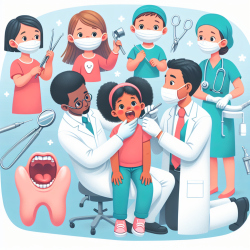Introduction
The Adverse Childhood Experiences cohort of the Malawi Longitudinal Study of Families and Health (MLSFH-ACE) provides a comprehensive look into the effects of adverse childhood experiences (ACEs) on adolescents in a low-income, high-HIV context. This study offers valuable insights that can enhance the practice of educators and therapists working with similar populations. By understanding and implementing the findings of this research, practitioners can improve their skills and outcomes for students facing similar adversities.
Key Findings and Implications
The MLSFH-ACE study reveals a high prevalence of ACEs among adolescents in Malawi, with significant associations between ACE scores and various health and social outcomes. Key findings include:
- A strong link between ACEs and increased HIV risk behaviors, including early sexual debut and lack of condom use.
- Significant associations between ACEs and intimate partner violence (IPV), both as victims and perpetrators.
- High prevalence of mental health issues, such as depression and PTSD, among adolescents with high ACE scores.
These findings highlight the critical need for early intervention and support for adolescents who have experienced ACEs. Practitioners can use this information to tailor their approaches, focusing on early identification and support for at-risk students.
Practical Applications
Practitioners can implement the outcomes of the MLSFH-ACE study in several ways:
- Early Identification: Use standardized tools to identify students with high ACE scores and provide targeted interventions.
- Holistic Support: Develop comprehensive support plans that address both mental and physical health needs, including access to mental health services and HIV prevention education.
- Community Engagement: Work with local communities to raise awareness about the impact of ACEs and promote supportive environments for adolescents.
Encouraging Further Research
The MLSFH-ACE study underscores the importance of longitudinal research in understanding the long-term impacts of ACEs. Practitioners are encouraged to engage in or support further research efforts to explore the dynamics of ACEs in different contexts and populations. Collaborative research initiatives can lead to the development of more effective interventions and policies.
Conclusion
The MLSFH-ACE study provides critical insights into the impact of adverse childhood experiences on adolescents in Malawi. By implementing these findings, practitioners can enhance their skills and improve outcomes for students facing similar challenges. Continued research and collaboration are essential to further our understanding and support of vulnerable populations.
To read the original research paper, please follow this link: Cohort profile: the Adverse Childhood Experiences cohort of the Malawi Longitudinal Study of Families and Health.










